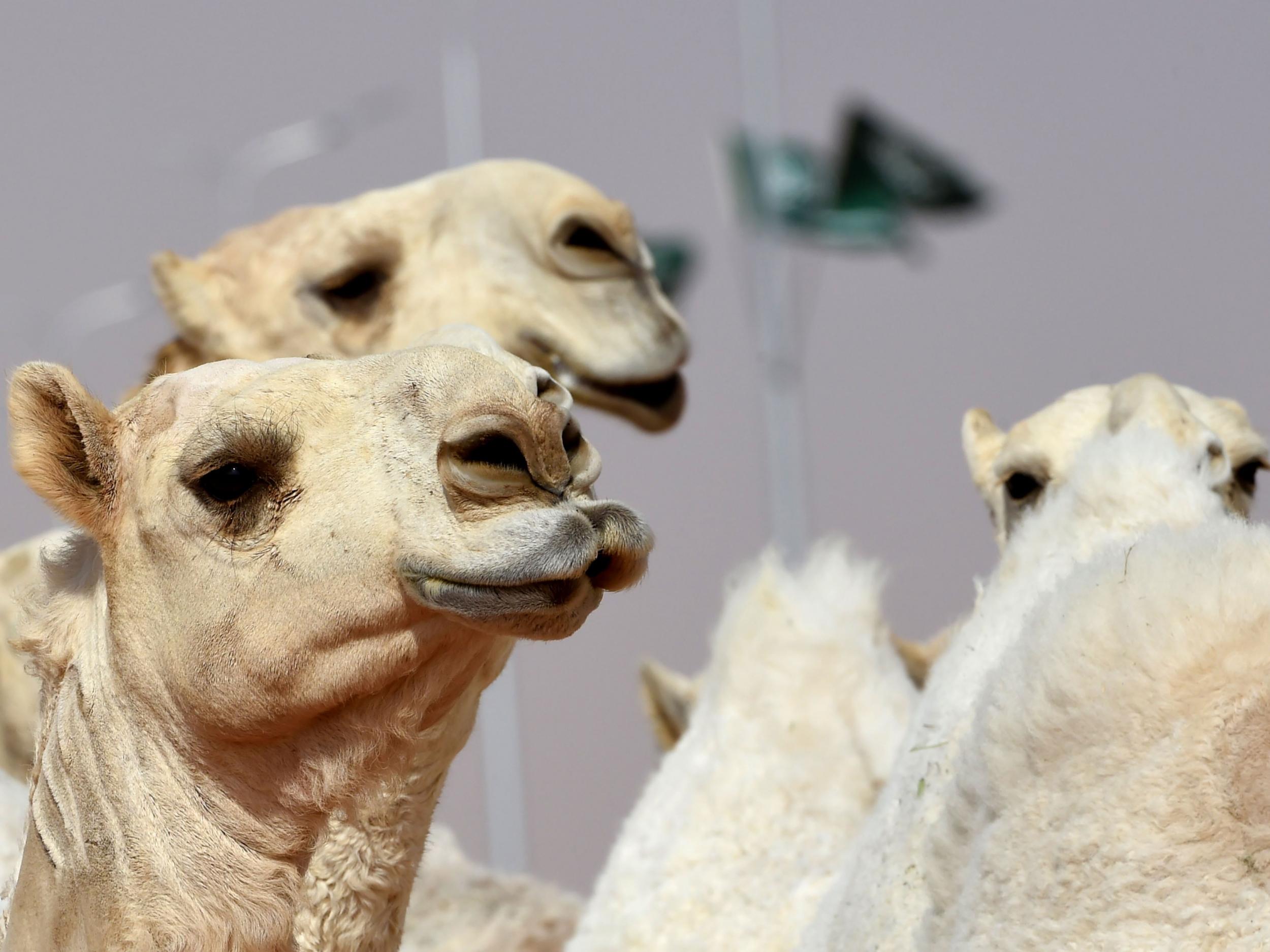12 camels disqualified from Saudi Arabian beauty contest after Botox used 'to make them prettier'
Animals rejected for violating strict rules during festival in Saudi Arabia

Your support helps us to tell the story
From reproductive rights to climate change to Big Tech, The Independent is on the ground when the story is developing. Whether it's investigating the financials of Elon Musk's pro-Trump PAC or producing our latest documentary, 'The A Word', which shines a light on the American women fighting for reproductive rights, we know how important it is to parse out the facts from the messaging.
At such a critical moment in US history, we need reporters on the ground. Your donation allows us to keep sending journalists to speak to both sides of the story.
The Independent is trusted by Americans across the entire political spectrum. And unlike many other quality news outlets, we choose not to lock Americans out of our reporting and analysis with paywalls. We believe quality journalism should be available to everyone, paid for by those who can afford it.
Your support makes all the difference.A dozen camels have been banned from a beauty contest in Saudi Arabia because their handlers used Botox to make them more attractive to judges.
The animals were rejected for violating strict rules at the King Abdulaziz Camel Festival taking place outside Riyadh, the Saudi capital.
Total cash prizes for owners of winning camels in show competitions and races at the 28-day festival reportedly amount to as much as 213 million riyals (£40.3m).
The dromedaries – a species of Arabian camel - paraded down a dusty racetrack as judges rated the size of their lips, cheeks, heads and knees.
"The camel is a symbol of Saudi Arabia,” explained the chief judge of the show, Fawzan al-Madi. “We used to preserve it out of necessity, now we preserve it as a pastime."
Much is changing in Saudi Arabia: the country is getting its first movie theatres. Soon women will be permitted to drive. The authorities eventually hope to diversify the economy away from the oil that has been its lifeblood for decades.

But as they seek to transform the conservative kingdom, the Saudi authorities are trying to smooth the path for reform by emphasising traditional aspects of their culture. And for the Bedouin of Arabia, nothing is more essential than the camel, used for centuries for food, transport, as a war machine and companion.
So the authorities have ramped up the country's annual month-long camel festival, which was relocated last year from the remote desert to the outskirts of the capital. On a rocky desert plateau, the government has erected a permanent venue to host the headline events.
The pavilion features an auction where top camels can fetch millions of riyals.
There are food stalls and souvenir shops, a petting zoo featuring the world's tallest and shortest camels, a museum with life-size sand sculptures of camels, tents for tasting camel's milk and viewing camel-hair textiles, and a planetarium showing how Arabs rode camels through the desert guided by the stars.
Organisers say this "heritage village" will expand in coming years as Crown Prince Mohammed bin Salman - who is heir to the throne, defence minister and head of oil and economic policy - takes the reins through a newly-created official Camel Club established by royal decree last year.
Halfway through this year's festival, attendance is up about a third from last year, with about 300,000 people making the 90 minute trip from Riyadh so far, said Fahd al-Semmari, a Camel Club board member.
"The vision is for the (festival) to become a global, pioneering forum for all classes of people to come for entertainment, knowledge and competition."
Additional reporting by Reuters
Join our commenting forum
Join thought-provoking conversations, follow other Independent readers and see their replies
Comments